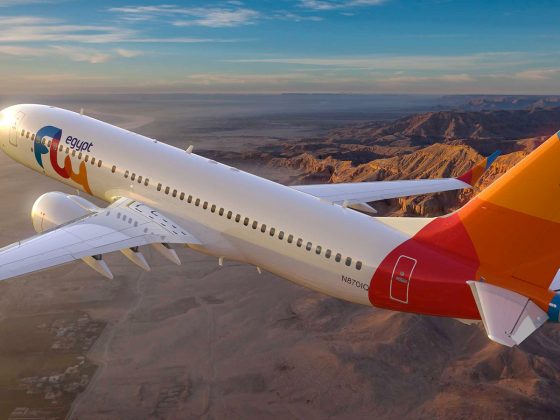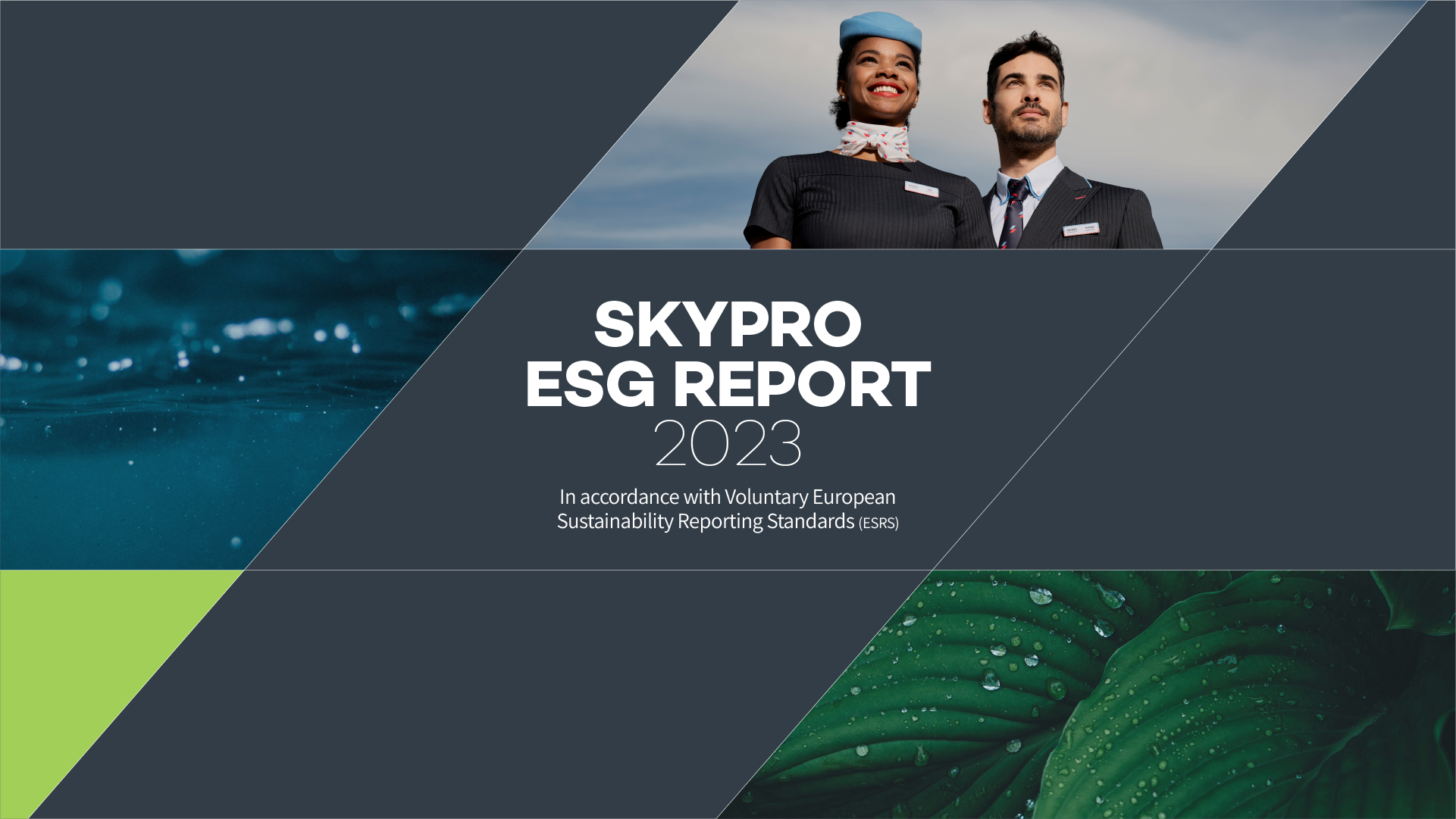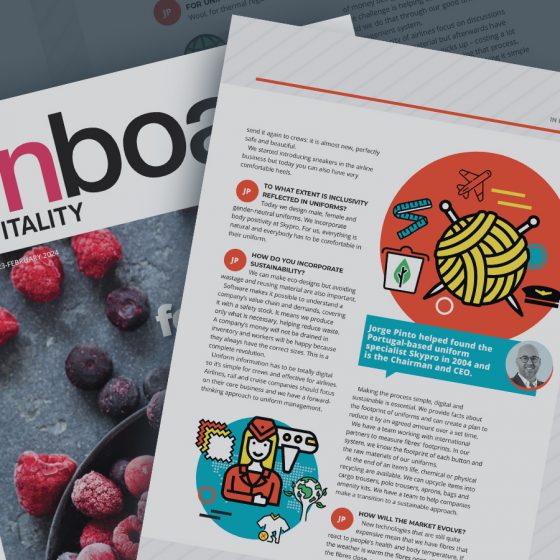As airlines continuously look for solutions to reduce their carbon footprint and achieve carbon-neutral status by 2050, often the tonnes of uniforms worn by aviation professionals are overlooked, even though most are neither biodegradable nor recyclable. Read below to understand how a small shift in uniform strategy could turn them into one of the levers towards achieving your sustainability goals.
Most major airlines have started making considerable efforts to reduce their carbon emissions – from Qantas’s pledge to go Carbon Neutral by 2050, to IAG’s promise to offset carbon emissions for all UK domestic flights as early as 2020, and HiFly’s first single use plastic-free flight introducing a number of sustainable initiatives into practise.
From making fuel out of consumer waste, replacing plastic dishes and cutlery with bamboo alternatives, to using electric vehicles to collect luggage… When it comes to finding sustainable, carbon-reducing solutions it seems that airlines have not left one stone unturned. With the exception of crew uniforms.
A large airline has around 20000 crew wearing an average of 20 pieces of uniform clothing and accessories each, from shirts to badges, from bags to shoes. The wrong choice of materials and it could be ordering 20 tonnes of unsustainable clothing to be offset elsewhere. And once we take into account staff rotations between 5-10% we are looking at another challenge: how to sresponsibly dispose of uniforms?
According to the Waste and Resources Action Programme (WRAP) only 9% of corporate workwear today is recovered for reuse. Due to the composite nature of uniforms including blended fabrics and plastic buttons for example, recycling uniforms is not an easy task and requires specialized care.
SKYPRO is IATA’s only strategic partner in the development of uniforms, shoes and uniform management solutions for the aviation industry. Our mission is to continuously care for the health and wellbeing of crew whilst improving the efficiency of airlines. This includes helping them achieve their increasingly ambitious carbon footprint targets, in five ways:
USE OF SUSTAINABLE FABRICS AND MATERIALS
In the world of uniforms, most jacket linings are made from non-biodegradable synthetic polyester, buttons are made from virgin plastic, and although leather is a bi-product of the food industry the tanning process includes the use of several stages and chemicals including which in turn could end up in the water supply if not carefully monitored.
To help reduce the impact of uniforms to the environment SKYPRO is able to produce using a number of alternative, more sustainable materials.
For example, we have the capability to manufacture shoes and accessories made from Piñatex as an alternative to leather: a sustainably-sourced material made from the leaves of the pineapple plant which are traditionally discarded or burned in the food industry. It is strong, lightweight, breathable and pliable and inspired by the natural surface of full-grained leather.
Further alternative materials we use include recycled hemp or cotton fibre buttons instead of plastic, ocean-recycled rubber soles, post-consumer recycled polyester linings and biodegradable fibres. All customisable to reflect airlines’ brand values and needs.
CERTIFIED TOXIN-FREE UNIFORMS TO PRESERVE CREW HEALTH
Many fabrics and leathers used in mass production contain small quantities of toxic substances which worn daily could affect human health. These include chromium, chlorophenols, formaldehyde, etc. and could build up to long-term effects to crew and the environment.
All SKYPRO fabrics are Oeko-Tex® Standard 100 certified, meaning every thread, button and other accessories have been tested for harmful substances and that the article therefore is harmless in human ecological terms.
MADE IN PORTUGAL WITH ECO-RESPONSIBLE SUPPLIERS
We favour working with suppliers who care for their own carbon footprint. For example, our fabric supplier uses recyclable, carbon-friendly and biodegrable materials, produces almost all of their energy consumption through their own solar panels and reuse over 50% of their water resources. They also reuse the scraps from production to develop the textiles for one of their sister brands, contributing to a circular economy.
Furthermore, given the majority of the clients SKYPRO works with today are based in Europe, Middle East and North Africa, most of our production is made here in Portugal – which not only ensures we can be agile and verify the quality of our products ourselves on a regular basis but also that we reduce the carbon footprint of our shipments and deliveries versus producing in the Far East.
REDUCTION IN OVERSTOCK AND WASTE THROUGH MYSKYPRO PORTAL
mySkypro Portal is the industry’s first end-to-end Uniform Management System and represents the digital revolution of uniform management. Amongst several benefits, the portal allows for seamless uniform order forecasting thanks to our artificial intelligence smart learning tool: it recognizes patterns in crew ordering behavior and size split and matches it with stock levels and production lead times to accurately trigger order notifications when needed. Airlines no longer need to hold significantly higher stock levels than needed and have less “waste” stock in sizes crew do not need – showing sustainable does not always need to be more expensive and can actually help achieve cost savings.
UNIFORM RECYCLING CAPABILITIES
Every year several tonnes of old clothing are simply dumped into landfill and the composite nature of blended fibres make reprocessing and recycling a challenge. SKYPRO is able to partner with third parties who have identified sustainable solutions to either recycle or upcycle disposed garments.
Feel free to contact us at sales@wearskypro.com if you would like SKYPRO to evaluate your current uniforms for free and learn how we can help make them contribute to your sustainability targets.










